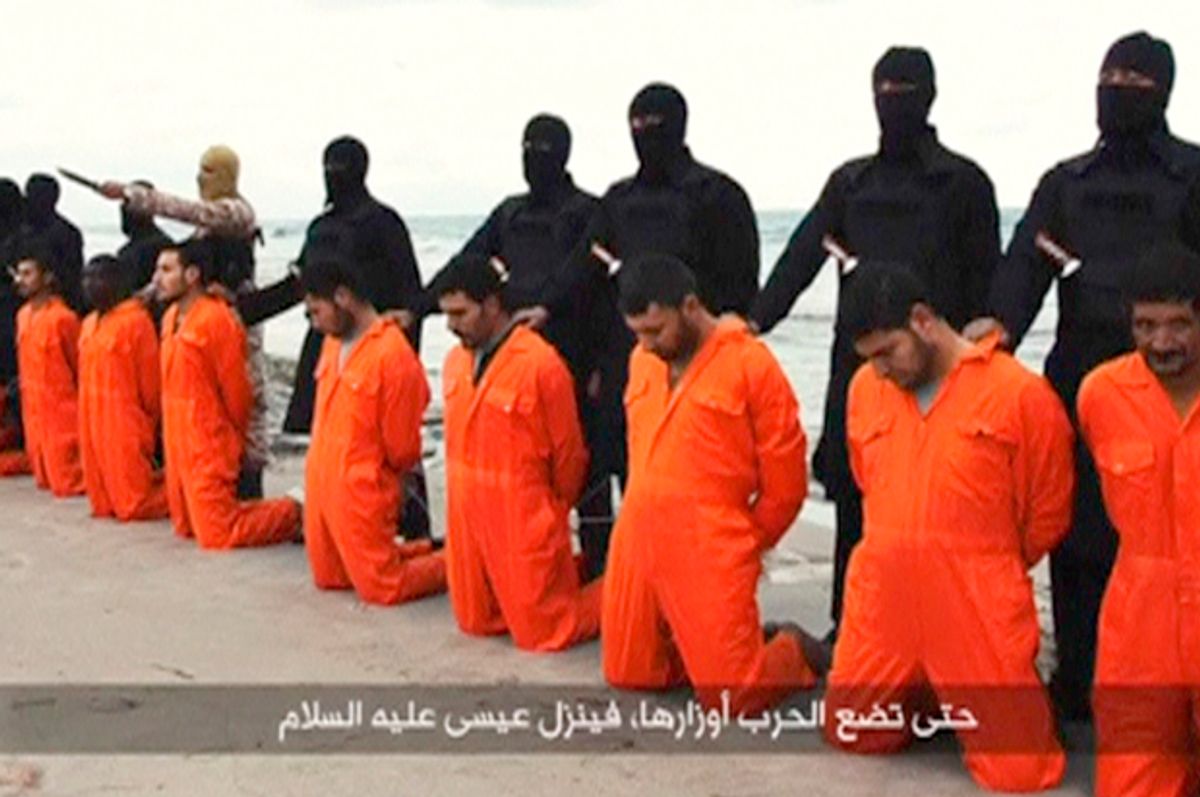Most of the 4,000 Western Muslims who have gone to fight in Syria and Iraq have joined the Islamic State. These recruits could have joined other militias that are less illegal, less hated or less demanding. Yet they flocked to the Islamic State rather than its competitors.
The Islamic State’s success at recruiting Western Muslims makes sense once you know that most of them are under the age of 35. Youth the world over are drawn to countercultural movements because they want to break with convention, and nothing is more countercultural for Muslim youth in the West than the Islamic State. The more hated it is and the more demands it places on its members, like turning over their passports, the more its countercultural allure increases. Similar to Neo-Nazi groups, the Islamic State’s pariah status is its selling point.
The Islamic State cultivates its countercultural appeal in two ways. It gleefully defies international norms of warfare, destroying antiquities, enslaving women and slaughtering its prisoners on camera. Then it justifies its brutality with passages from Islamic scripture unfamiliar to most Muslims. The more shocking the act and the more obscure the scripture the better. When Muslim scholars raise a hue and cry that such-and-such act is un-Islamic, the Islamic State cites chapter and verse. It uses gore to deliberately provoke a debate about authentic Islam.
This is an effective, if narrowcast, recruitment technique. Most Muslim youth deny that such horrendous violence could be justified by scripture. But some begin to wonder if mainstream Muslim culture is inauthentic, a horrible sin for youth, which leads them to question their values, identity and authority figures. Some reconcile themselves to the mainstream, others leave their religion, and a few go on to embrace the Islamic State’s cause. But the State does not need legions to do harm.
This is a coarsening of the “jihadi cool” phenomenon, the countercultural appeal of belonging to a terrorist organization identified by terrorism scholar Marc Sageman as part of al-Qaida’s allure. It is jihadi cruel, shocking acts of violence justified with scripture to provoke Muslim youth into questioning the values and authenticity of mainstream Islam in the West. Western Muslims who carry out the gruesome acts themselves garner instant notoriety and force their young co-religionists back home to question their identity and convictions.
With this in mind, we can begin to understand why some Muslim youth who once celebrated Western culture and their place in it would later laud the Islamic State’s shocking violence. In their eyes, the violence defies convention so it must be more authentic than the complacent status quo they see around them. The greater the outrage of Muslims and non-Muslims, the more appealing the violence is. That’s why a new convert to Islam like 19-year-old Jaelyn Young in Mississippi or 17-year-old Ali Shukri Amin in northern Virginia, who both knew little about the intricacies of Islamic scripture, could be swayed by the Islamic State’s swagger.
There is an upper limit on the number of people who would be attracted to the Islamic State. Like Neo-Nazi groups, it is not trying to cultivate mass support, even among Muslims. Doing so would undermine its jihadi cruel recruitment strategy. And there are ways to diffuse youthful fascination with the Islamic State. Former jihadists can debate them on the finer points of scripture and the media can expose them to the Islamic State’s hypocrisy.
But for most Muslim youth entranced by the Islamic State, what’s required is time to grow up and realize that humdrum convention exists for a reason: The world goes to pieces without it. Hopefully they will find more constructive ways to counter or make peace with mainstream culture before their own worlds are shattered on the battlefield or in prison.
William McCants directs the project on U.S. Relations with the Islamic World at the Brookings Institution, is adjunct faculty at Johns Hopkins, and is a former U.S. State Department senior adviser for countering violent extremism. His latest book is "The ISIS Apocalypse: The History, Strategy, and Doomsday Vision of the Islamic State" (St. Martin's).




Shares